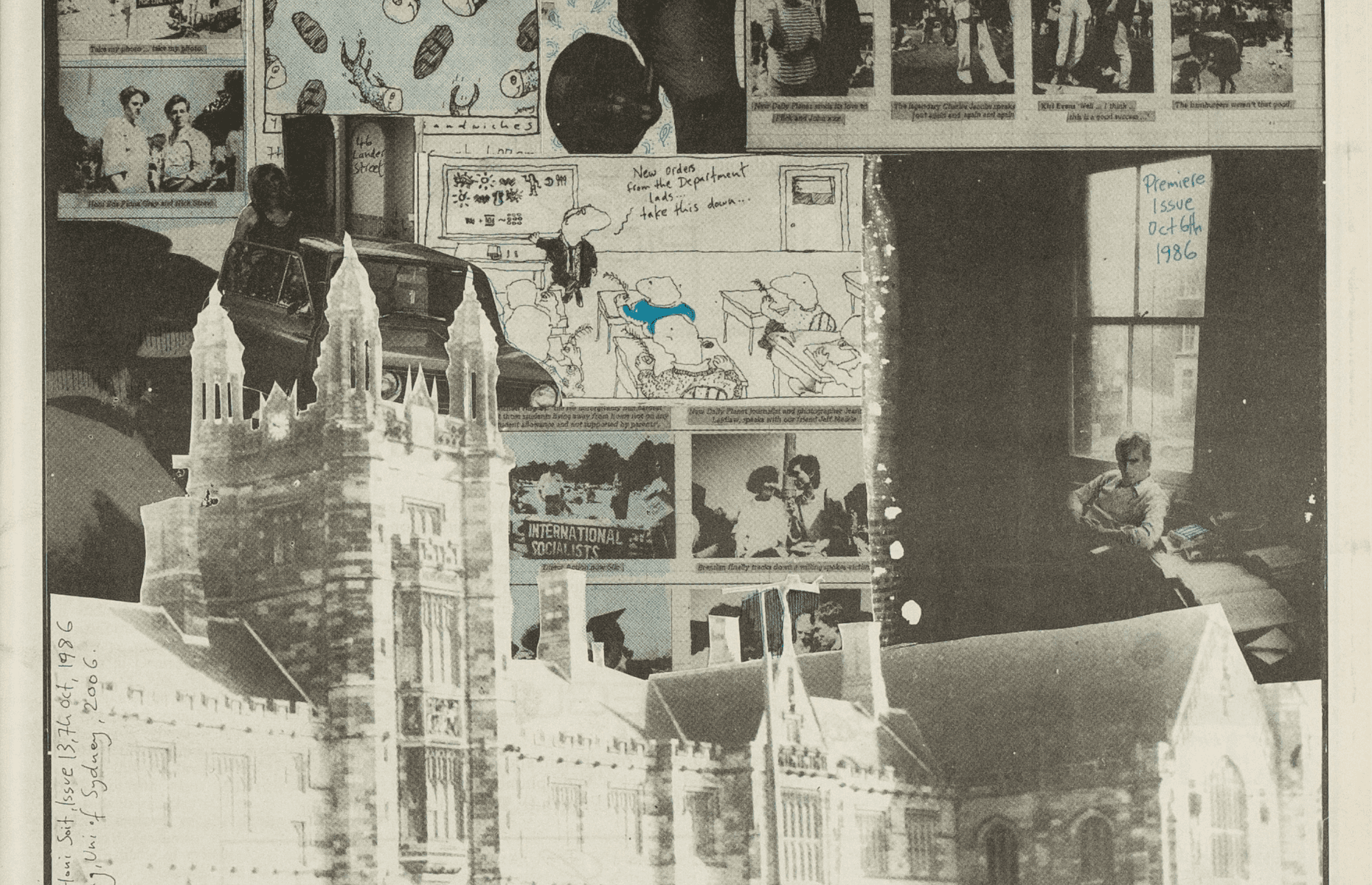One Friday evening early in the semester, I told a friend – a former editor – that editing Honi only really started to get good as I realised it was starting to end. This happens to everyone, every year, he said. You become overwhelmed with putting out the paper, always just trying to make it to the next week. Then it’s week 13, he told me. And you’ll wish you had just a little more time.
Truthfully, editing Honi is a lot of work. More work than is reasonable for a uni student, who almost always comes into the job already balancing study, financial and family commitments. Spending 16+ hours on a Sunday putting together a 30 page paper, doing a 3 hour meeting in the middle of the week, editing 5+ articles, as well as writing your own ones, is an entirely unreasonable workload, particularly on $200 a week. It’s been the most difficult year of my life and I have cried on the phone to my Mum and Dad an unreasonable amount. Sometimes the workload made it hard to be in the moment, soaking it all in.
But I’d do it all again. And again, and again, and again. Because there is no newspaper in the world quite like Honi. And because I won’t remember this year for the breakdowns, the heated arguments, or the many, many tears.
I’ll remember it as Thomas, Sam and I sneaking through windows between buildings, finding the best rooftop views to share with our readers, looking over campus and feeling like kings of our little world. I’ll remember it as consistently being made to feel more clever just for having been around Ellie. I’ll remember it as getting scolded by Carmeli, the best news writer I know, for suggesting the news pyramid is obsolete. I’ll remember it as the way Zara romanticised the every day, diagnosing not herself but the world around her with main character syndrome (complimentary). I’ll remember it as Fabian challenging my prior inability to socialise with men, and also my inability to be challenged; as Christian’s commitment to holding us to a moral baseline when we were perhaps too unwilling; and as Amelia’s pushing us to be better, refusing to let lack of effort lower the pride we feel in our paper. I’ll remember it as Khanh consistently surprising us with information they’d been hiding from us for months, the smiling assassin.
I’ll remember the Langford Office, where we lay up the paper, as the place where it accidentally slipped out that Sam was our last choice for the ticket because he ticks literally no diversity criteria (sorry Sam). But I’ll also remember it as the friendship that blossomed between us through our mutual desire to spark controversy. What I won’t remember as much is the urgency with which Thomas and I pursued the office for kick-ons, where we definitely prescribed to the SRC’s policy of not consuming alcohol on the premises.
This week’s edition has a naked body on the back cover. I hope it’ll prompt you to question what you associate with certain bodies, and why you might make those associations. Is what makes a body part sexual, dirty, tender or rough solely reliant on who it belongs to? I hope that, if your initial response was disgust and discomfort, you take the time to question how we categorise our bodies. And hey, we all have one.
Some people find themselves in Europe. But I found myself in the Langford Office. I’d be lying if I said I won’t be lost without Honi. Most of my late teen years were spent wanting to edit. Now I’ve done it. It might be true that the most precious things in life are fleeting, but I wish I’d had just a little more time.





